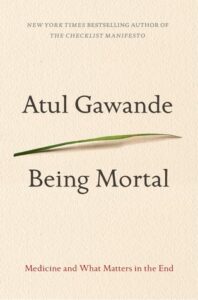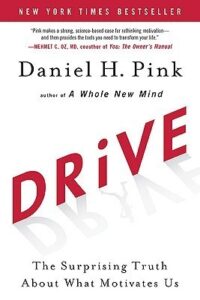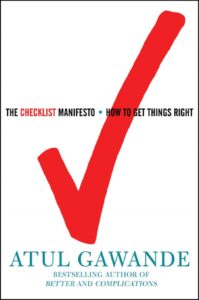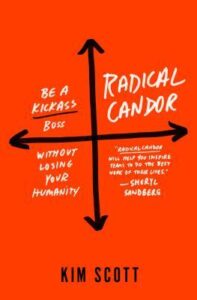The role of today’s healthcare executive extends far beyond operational management and fiscal oversight. Effective leadership in healthcare requires cultural intelligence, emotional resilience, ethical clarity, and the ability to navigate complex human systems. While traditional business literature offers foundational tools, it often falls short of addressing the nuanced challenges inherent in healthcare leadership. The following five books—rich in interdisciplinary insights and grounded in human experience—offer compelling, nontraditional perspectives essential for healthcare executives seeking depth, relevance, and inspiration.
 Being Mortal: Medicine and What Matters in the End by Atul Gawande
Being Mortal: Medicine and What Matters in the End by Atul Gawande
In Being Mortal, physician and writer Atul Gawande confronts the medical profession’s historical discomfort with aging, decline, and death. Gawande critiques a system that prioritizes treatment over well-being, often at the expense of a person’s quality of life. For healthcare executives, this book serves as both a philosophical and practical call to action: to rethink institutional policies and care models through the lens of human dignity and patient-centered outcomes. It is an essential exploration of what it means to lead in a field where ethical imperatives often intersect with operational realities.
 Drive: The Surprising Truth About What Motivates Us by Daniel H. Pink
Drive: The Surprising Truth About What Motivates Us by Daniel H. Pink
Drawing on decades of research in behavioral science, Daniel Pink deconstructs conventional assumptions about motivation in organizational contexts. He posits that autonomy, mastery, and purpose are far more effective in driving performance than extrinsic incentives. In high-stakes healthcare environments—where burnout, turnover, and moral injury are prevalent—Drive challenges executives to cultivate a culture that supports intrinsic motivation. Its implications are especially pertinent for leaders charged with workforce development, employee engagement, and organizational transformation.
 The Art of Possibility by Benjamin and Rosamund Stone Zander
The Art of Possibility by Benjamin and Rosamund Stone Zander
This interdisciplinary work offers a refreshing synthesis of psychological insight, leadership theory, and artistic creativity. The Zanders propose a shift from scarcity-based thinking to a mindset of abundance and generative possibility. In healthcare, where limitations in resources, regulation, and risk often shape decision-making, this book encourages executives to reimagine constraints as opportunities for innovation. It is particularly relevant for those seeking to cultivate adaptive leadership and systems thinking in dynamic care environments.
Effective communication is a non-negotiable skill for healthcare leaders, yet few texts address it with the clarity and pragmatism found in Radical Candor. Kim Scott’s framework—centered on “caring personally while challenging directly”—equips leaders to foster psychologically safe environments while maintaining accountability. For healthcare executives managing diverse and often hierarchical teams, this book offers a tactical and ethical approach to difficult conversations, performance management, and leadership presence.
 The Checklist Manifesto: How to Get Things Right by Atul Gawande
The Checklist Manifesto: How to Get Things Right by Atul Gawande
Returning to Gawande’s body of work, The Checklist Manifesto is a masterclass in operational precision and cognitive humility. By championing the value of simple checklists in complex systems, Gawande underscores how standardization can coexist with clinical judgment to enhance safety and reliability. For executives striving to implement quality improvement initiatives, this book offers a compelling argument for structured decision-making and team coordination in environments where error carries profound consequences.
The path to impactful healthcare leadership is not paved solely with conventional business acumen. It requires a broader, more integrated intellectual toolkit—one that encompasses ethics, communication, systems thinking, and a profound respect for human complexity. These five books offer transformative insights for executives committed to leading not just efficiently, but wisely and humanely.

Author: Herbert Van Patten III
Enjoyed this article? Take your leadership and communication skills further with the Relationship Sales 101 certificate course—authored by Herbert Van Patten III. Learn the essentials of selling with confidence and integrity. Enroll now.




